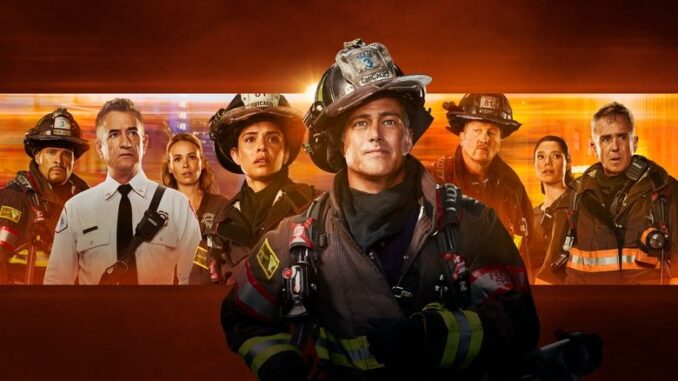
The Echo of a Fictional Blast: When Station 51 Exploded on md07
It was a typical Wednesday night, a ritual observed by millions. Families gathered, remotes clutched, ready for their weekly dose of heroism, heart, and the comforting chaos of Engine 51, Truck 81, and Squad 3. But on the night of md07, the familiar comfort shattered, quite literally, as a blinding flash engulfed the hallowed halls of Station 51. For Chicago Fire fans, it wasn’t just a plot twist; it was a gut punch, a collective gasp that reverberated from living rooms across the globe, giving way to a panic as real as any fictional crisis could inspire.
The screen fractured not just with light and debris, but with the very fabric of viewers’ expectations. One moment, the familiar faces – Severide, Casey, Boden, Brett, Stella, Herrmann, Mouch – were navigating their everyday heroics, their banter a comforting hum. The next, a concussive roar ripped through the air, followed by a terrifying stillness, then a deluge of dust and falling timber. Characters, our beloved characters, were thrown like rag dolls, engulfed by the maelstrom. The visual wasn’t just shocking; it was an act of violation. Station 51, the bastion of safety, the home base, the very symbol of the show’s resilience, had imploded.
For Sarah, a dedicated fan for eleven seasons, the remote slipped from her nerveless fingers, clattering to the floor. Her heart hammered, an emergency siren in her chest. She stared, wide-eyed and unblinking, at the smoldering wreckage on her TV. Disbelief warred with a paralyzing fear. Did that just happen? Did I see that right? Her mind raced, rewinding the last few seconds, searching for a sign, a clue, anything that could mitigate the horrifying image. These weren’t just actors on a screen; they were family. She’d grieved with them, celebrated with them, watched them grow, love, and lose. To see their sanctuary, their second home, obliterated, felt like an attack on her own emotional landscape.
The individual shock quickly coalesced into a digital inferno. Twitter erupted, a cacophony of caps-locked exclamations, frantic emojis, and desperate questions. #ChicagoFire trended instantaneously, a sea of “OH MY GODS,” “NOOOOOS,” and “ARE THEY OKAY?!” Fan forums, typically bustling with theories about nascent romances or potential promotions, became war zones of raw emotion. Screenshots of the explosion were dissected frame by frame, every flicker of movement scrutinized for a glimpse of a familiar face, a sign of life, a confirmation of the unthinkable. Group chats buzzed with frantic texts, each message a shared shriek of alarm and despair. “I can’t breathe,” one might type, mirroring the collective choking feeling of suspense. “Who do you think it was?” another would ask, venturing into the terrifying game of ‘who survived.’
The panic wasn’t merely about the shock value of a cliffhanger; it was rooted in a profound emotional investment. The writers of Chicago Fire, deliberately and expertly, had built a family, not just within the firehouse walls, but between the characters and their audience. Viewers had witnessed countless close calls, mourned devastating losses, and celebrated hard-won victories. They’d seen fire rip through buildings, cars collide, and bombs explode, but never had the station itself felt so fundamentally violated. This wasn’t just another emergency call; this was an attack on the very heart of their fictional world, and by extension, on the stable, comforting routine of their weekly viewing.
As the screen went dark, plunging viewers into the agony of a week-long wait, the panic solidified into gnawing dread. The online community became a collective support group, sharing theories, offering comfort, and fueling the rampant speculation. Who was in the truck bay? Who was in Boden’s office? Who had been walking through the apparatus floor? Every scenario was played out, every character’s fate weighed in the balance. The explosion on md07 wasn’t just a dramatic crescendo; it was a brutal, effective exercise in audience manipulation, leaving millions of devoted fans in a state of genuine, anxious disarray.
In the end, a fictional explosion triggered a very real panic. It underscored the profound power of storytelling, demonstrating how deeply characters and their worlds can intertwine with our own. For Chicago Fire fans, md07 will forever be etched in memory as the night Station 51 bled, and their hearts stopped beating in unison with its fictional collapse, proving that sometimes, the most visceral fear can be found not on a burning street, but within the confines of a television screen. And they’d be back, week after agonizing week, desperate for answers, for reassurance, for the rebuilding of their beloved home.
